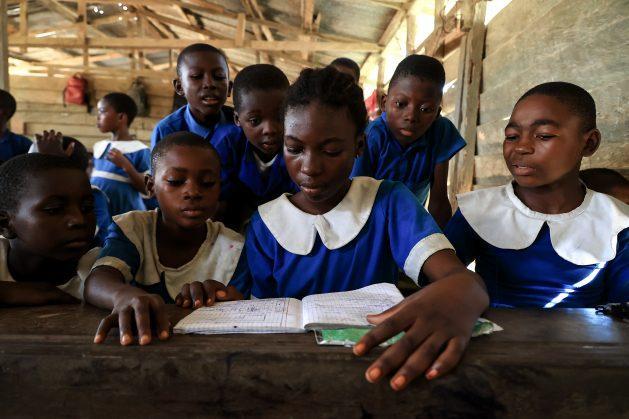3.082 - AMICOR (24)
#Dra. Valderês A. Robinson Achutti (*13/06/1931+15/06/2021)
Filmando num polder na Holanda, no século passado. (clicar em Apresentação de Slides)
#Britannica
Following
Germany's unconditional surrender,
World War II in
Europe officially ended at midnight on this day (May 8, 1945) although the war in the Pacific continued until the
Japanese surrender in September.
#HDR
2021/22 Human Development Report Advisory Board convenes for expert inputs |
|
The second Advisory Board meeting for the 2021/22 Human Development Report (HDR) was organized on April 25 and 26 in a hybrid format with the purpose of providing advice and guidance on the first draft of the upcoming report.
The two-day meeting was chaired by and Michèle Lamont, Professor of Sociology and African and African American Studies and the Robert I Goldman Professor of European Studies at Harvard University; and Tharman Shanmugaratnam, Senior Minister and Coordinating Minister for Social Policies of Singapore. The board also includes government officials, academics and leading global development experts.
Participating via Zoom and in person, the Advisory Board thoroughly reviewed the draft including its key messages, results and policy recommendations, keeping in mind the diverse readership of the report, including the political leadership, media and the international community./.../
https://www.matinaljornalismo.com.br/matinal/colunistas-matinal/juremir-machado/juremir-arte-moderna-na-casa-da-memoria/ |
|
#
|
Quanta Wins Pulitzer Prize for Explanatory Reporting
The staff of Quanta Magazine, notably senior editor Natalie Wolchover, have won the 2022 Pulitzer Prize for Explanatory Reporting, “for coverage that revealed the complexities of building the James Webb Telescope designed to facilitate groundbreaking astronomical and cosmological research.”
Wolchover’s thorough, tireless reporting explains how the construction and launch of the space telescope became a tense, three-decade odyssey, one that touched on the biggest questions in astronomy and cosmology yet became profoundly personal for the scientists behind the project.
We are deeply grateful to the Pulitzer Prize Board for this honor, and for the light it shines on our colleague Natalie, who has been part of Quanta since the very beginning. Here is the feature story that the Pulitzer Prizes recognized, from December 3, 2021.
|
|
|
|
ASTROPHYSICS The Webb Space Telescope Will Rewrite Cosmic History. If It Works.By NATALIE WOLCHOVER The James Webb Space Telescope has been designed to answer many of the core questions that have animated astronomers over the past half-century. With a $10 billion price tag, it is one of the most ambitious engineering initiatives ever attempted. But for it to achieve its potential — nothing less than to rewrite the history of the cosmos and reshape humanity’s position within it — a lot of things have to work just right.
Read the article |
|
|
#Nature
 |
| Mycobacterium tuberculosis (orange) invades immune cells known as macrophages (pink) in the lungs. (Science Photo Library) |
|
Tuberculosis is difficult to treat and study, partly because the bacterium that causes it, Mycobacterium tuberculosis, holes up inside the very immune cells that the body deploys to fight it. Scientists are fusing sequencing, chemistry and imaging techniques to probe interactions between intracellular pathogens — including Salmonella typhimurium, Chlamydia trachomatis and Listeria monocytogenes — and their host cells. Nature | 7 min read
|
Optimal sleep duration
About 7 hours a night was identified as the optimal sleep duration, using genetic and cognitive factors, brain structure, and mental health as key measures, U.K. Biobank data showed. (Nature Aging)
#IPS
People require food, with more people requiring more food and less people requiring less food. Despite that self-evident relationship, most governments appear reluctant to accept the intimate link between the supplies of food and the numbers of people and continue calling for the further growth of their populations. The world’s population of approximately 8,000,000,000, or […] |
|
|
|
|
“I first think about my children. They are why we were forced to leave – because our children are always our first concern.” These are the moving words of Victoria, who fled the brutal war in Ukraine with her two daughters. Her eyes welling up with tears, she recalled their dangerous journey from Ukraine. She […] |
|
|
|
|
The world’s leading health and children specialised organisations have once again sounded the alarm bell about what they classify as “shocking, insidious, exploitative, aggressive, misleading and pervasive” marketing tricks used by the baby formula milk business with the sole aim of increasing, even more, their already high profits. On this, the World Health Organization (WHO) […] |
|
|
|
|
Growing up in Samoya Village of Bungoma County in the Western part of Kenya, Elvis Wanjala has fond childhood memories of the rainy season, chasing and catching black-bellied winged termites in the rain. “The termites would also come inside the house, attracted by the light late in the evening. My mother would sun-dry the termites […] |
|
|
|
|
#
#Live Science News
 |
(The Asahi Shimbun via Getty Images) |
In 1996, Dolly the sheep made headlines around the world after becoming the first mammal to be successfully cloned from an adult cell. Many commentators thought this would catalyze a golden age of cloning, with numerous voices speculating that the first human clone must surely be just a few years away.
So why, almost 30 years on from Dolly, haven't humans been cloned yet? Is it primarily for ethical reasons, are there technological barriers, or is it simply not worth doing?
Full Story: Live Science (5/9) #National Geography
 | | Image courtesy WMAP/NASA |
| |
|
 | | Image courtesy NASA/CXC/CfA/R.Kraft et al., MPIfR/ESO/APEX/A.Weiss et al. and ESO/WFI |
| |
|
#Live Science
 |
(Coneyl Jay) |
Why has humanity never been visited by aliens (that we know of)? The question has confounded scientists for decades, but two researchers have come up with a possible — and disturbing — explanation: Advanced civilizations could be doomed to either stagnate or die before they get the chance.
The new hypothesis suggests that, as space-faring civilizations grow in scale and technological development, they eventually reach a crisis point where innovation no longer keeps up with the demand for energy. What comes next is collapse. The only alternative path is to reject a model of "unyielding growth" in favor of maintaining equilibrium, but at the cost of a civilization's ability to expand across the stars, the researchers said.
Full Story: Live Science (5/11) #Medium
We take for granted that time is real. But what if it’s only an illusion, and a relative illusion at that…
#
|
Black Hole Image Reveals Beast in Center of Milky WayBy JONATHAN O'CALLAGHAN In 2019, the Event Horizon Telescope released a historic image of a supermassive black hole in another galaxy. The follow-up — an image of Sagittarius A* — shows it shimmering in the heart of our own.
Read the article |
|
|
|
 | Powerful ‘Machine Scientists’ Distill the Laws of Physics From Raw DataBy CHARLIE WOOD Researchers say we’re on the cusp of “GoPro physics,” where a camera can point at an event and an algorithm can identify the underlying physics equation.
Read the article
Related:
How Close Are Computers to Automating
Mathematical Reasoning?
by Stephen Ornes (2020) |
 | Computer Scientists Prove That Certain Problems Are Truly HardBy MORDECHAI RORVIG Finding out whether a question is too difficult to ever solve efficiently depends on figuring out just how hard it is. Researchers have now shown how to do that for a major class of problems.
Read the article
Related:
Which Computational Universe
Do We Live In?
by Erica Klarreich |
|
 | Why ‘De-Extinction’ Is Impossible (But Could Work Anyway)By YASEMIN SAPLAKOGLU Several projects are aiming to bring back mammoths and other species that have vanished from the planet. Whether that’s technically possible is beside the point.
Read the blog
Related:
New Hybrid Species Remix
Old Genes Creatively
by Jonathan Lambert (2019) |
 | New Map of Meaning in the Brain Changes Ideas About MemoryPodcast hosted by SUSAN VALOT;
Story by JORDANA CEPELEWICZ Researchers have mapped hundreds of semantic categories to the tiny bits of the cortex that represent them in our thoughts and perceptions. What they discovered might change our view of memory.
Listen to the podcast
Read the article |
|
Error Correction Without Magnets
Physicists have achieved error correction on their spin qubits without using a magnetic field, reports Martijn Boerkamp for Physics World. This new zero-field technique eliminates the magnetic field itself as a source of error. The code was implemented on three qubits, which allowed the researchers to correct for either “bit-flips” or “phase-flips” but not both. In 2021 Katie McCormick wrote for Quanta about a 9-qubit code that corrects for both.
Bending Light to See New Earths
Scientists are designing a new telescope that will use the gravitational pull of the sun to bend and focus light from distant sources, reports Elizabeth Howell for Inverse. This “gravity telescope” would be used to hunt for Earth-like planets around other stars. Gravity telescopes have been used before. In 2017, Ashley Yeager wrote for Quanta about new observations of the universe’s earliest galaxies aided by a “giant cosmic lens” of galaxies and dark matter in the foreground. |
|
|
#Project Syndicate
A Brief History of Equality
By Thomas Piketty
In A Brief History of Equality, Thomas Piketty, the world’s leading economist of inequality, presents a short but sweeping – and surprisingly optimistic – history of human progress toward equality despite crises, disasters, and backsliding. A perfect introduction to the ideas developed in his monumental earlier books.
From Harvard University Press
|
|
|




























No comments:
Post a Comment